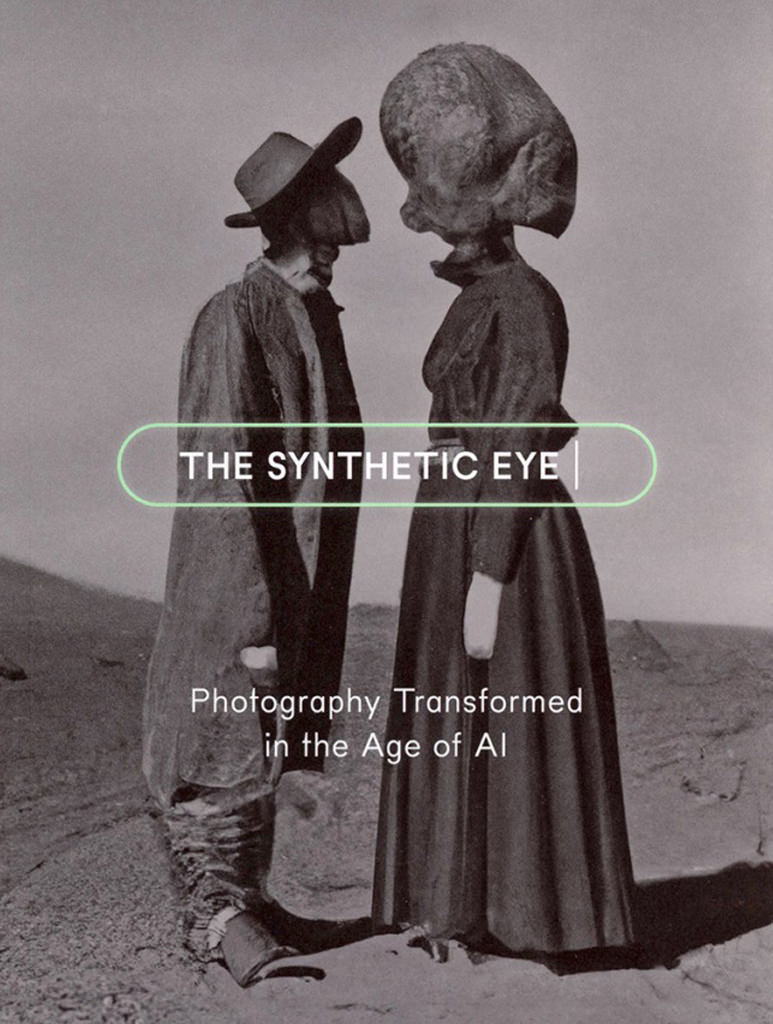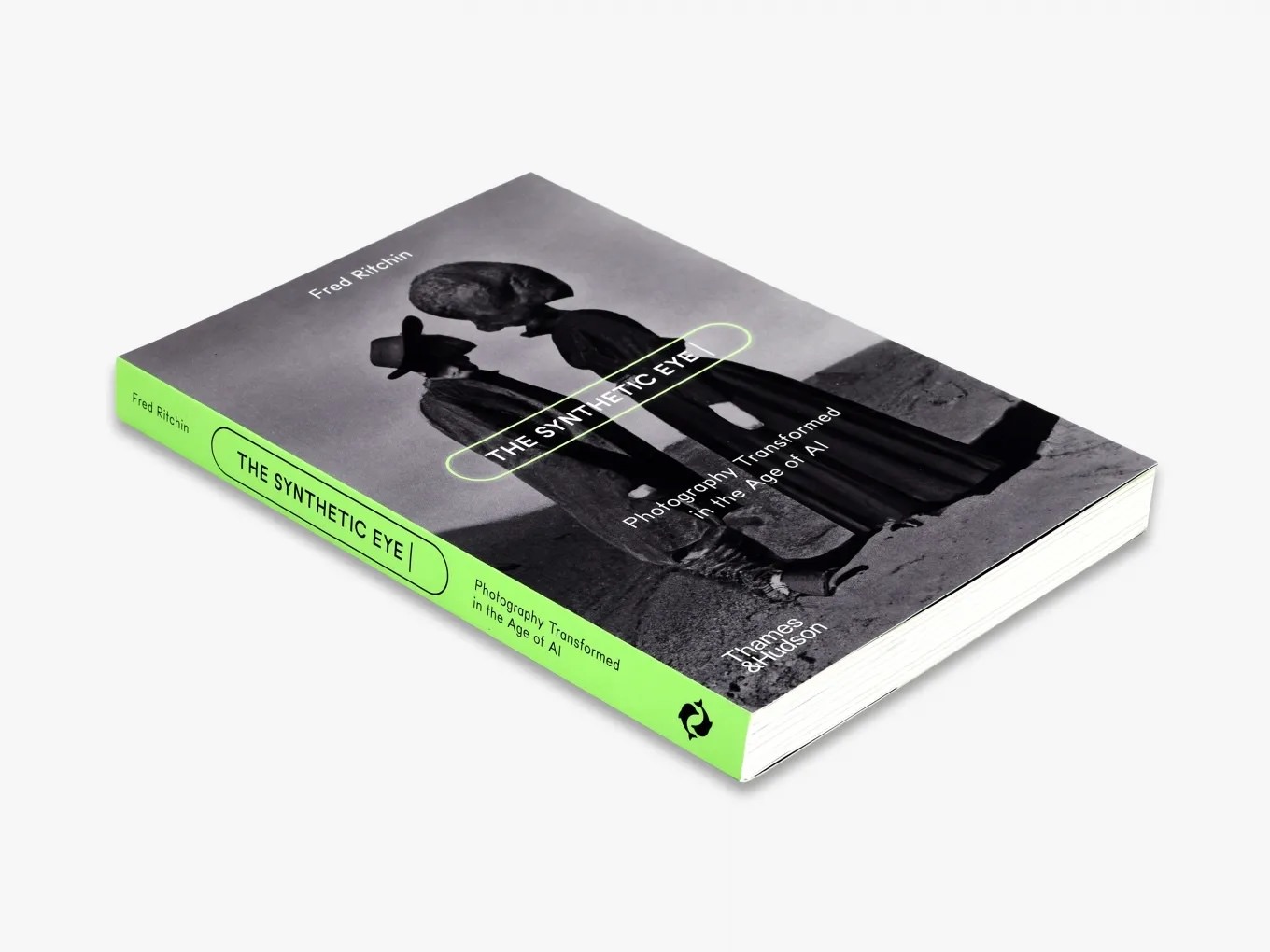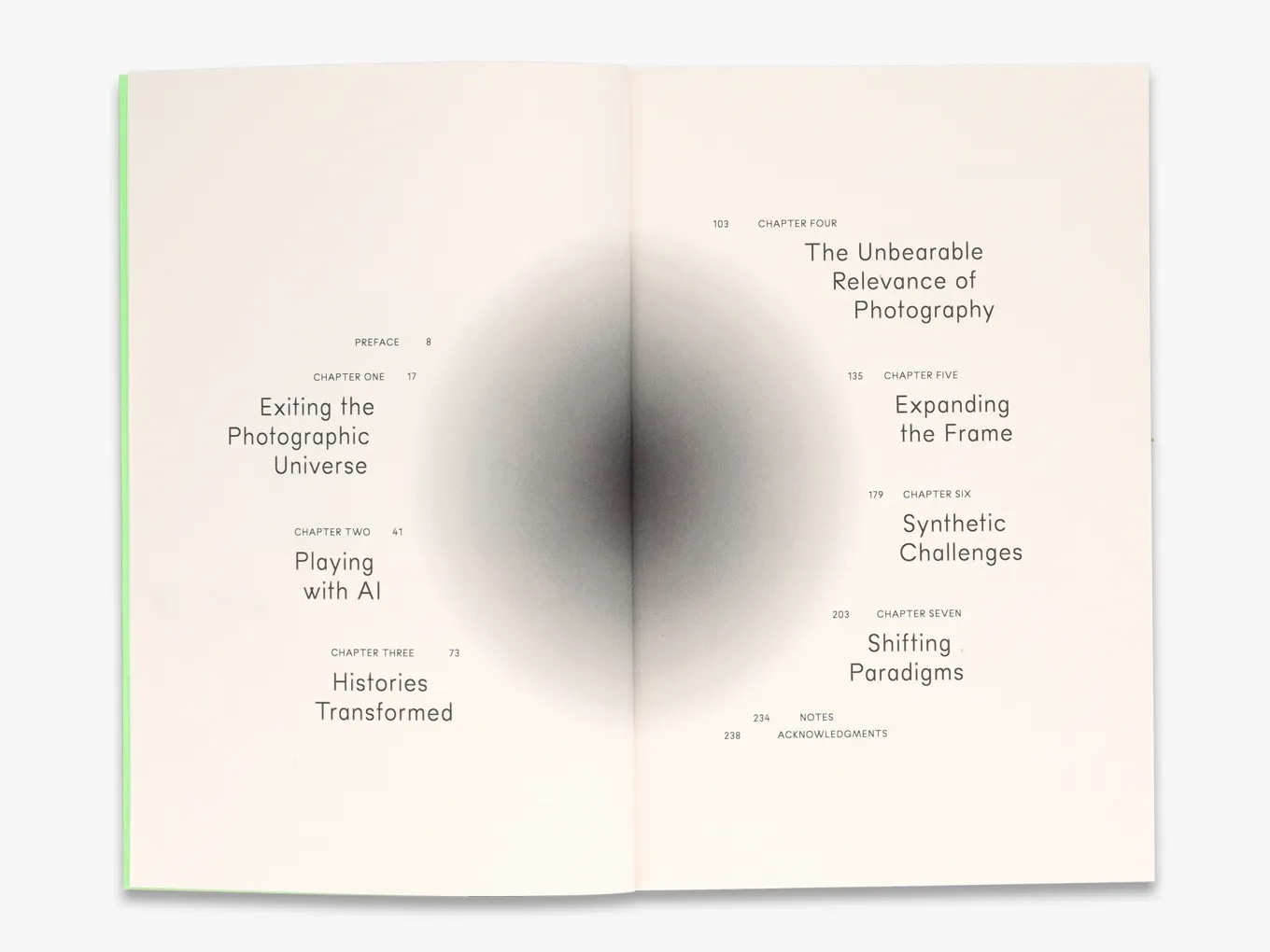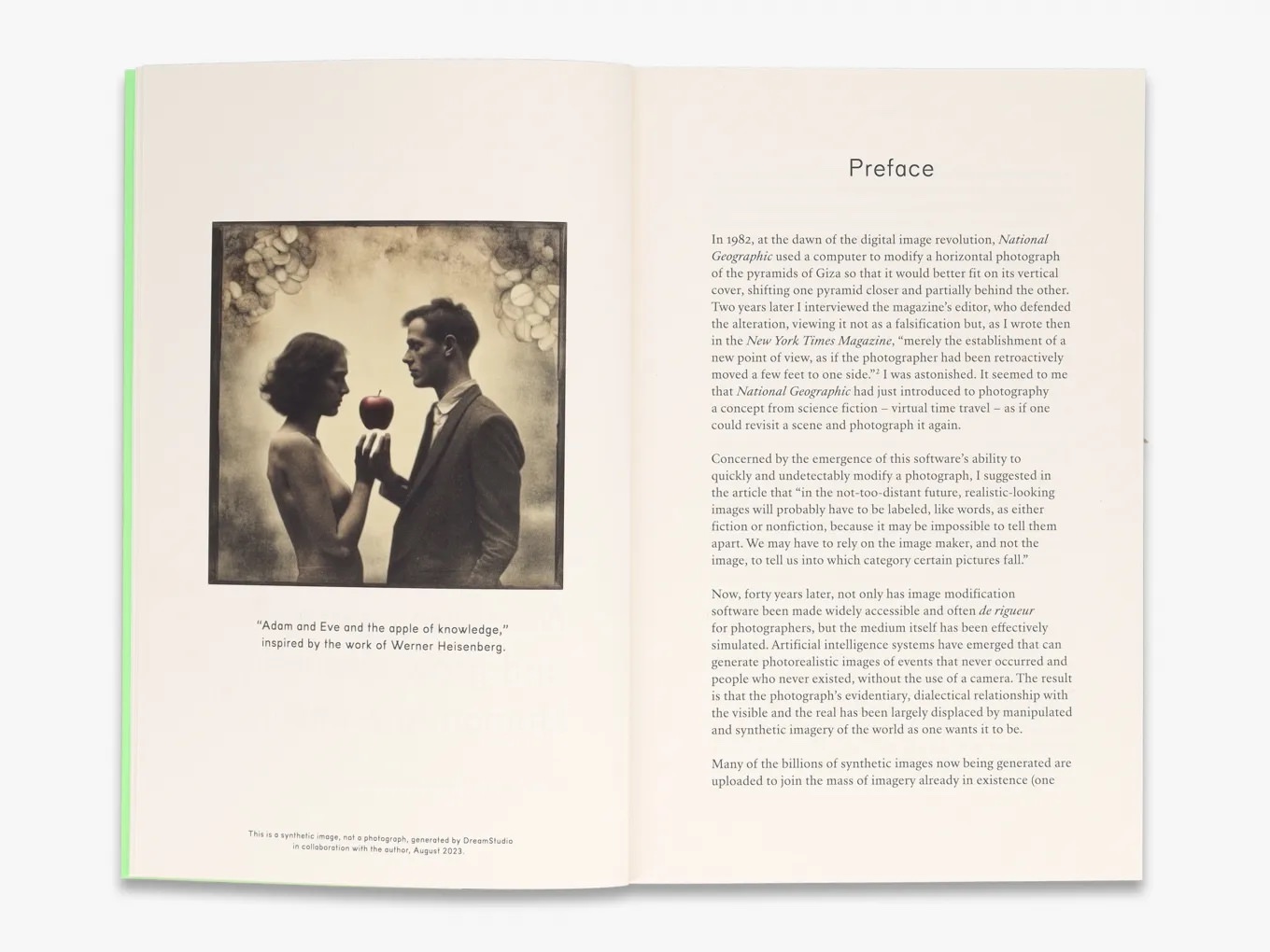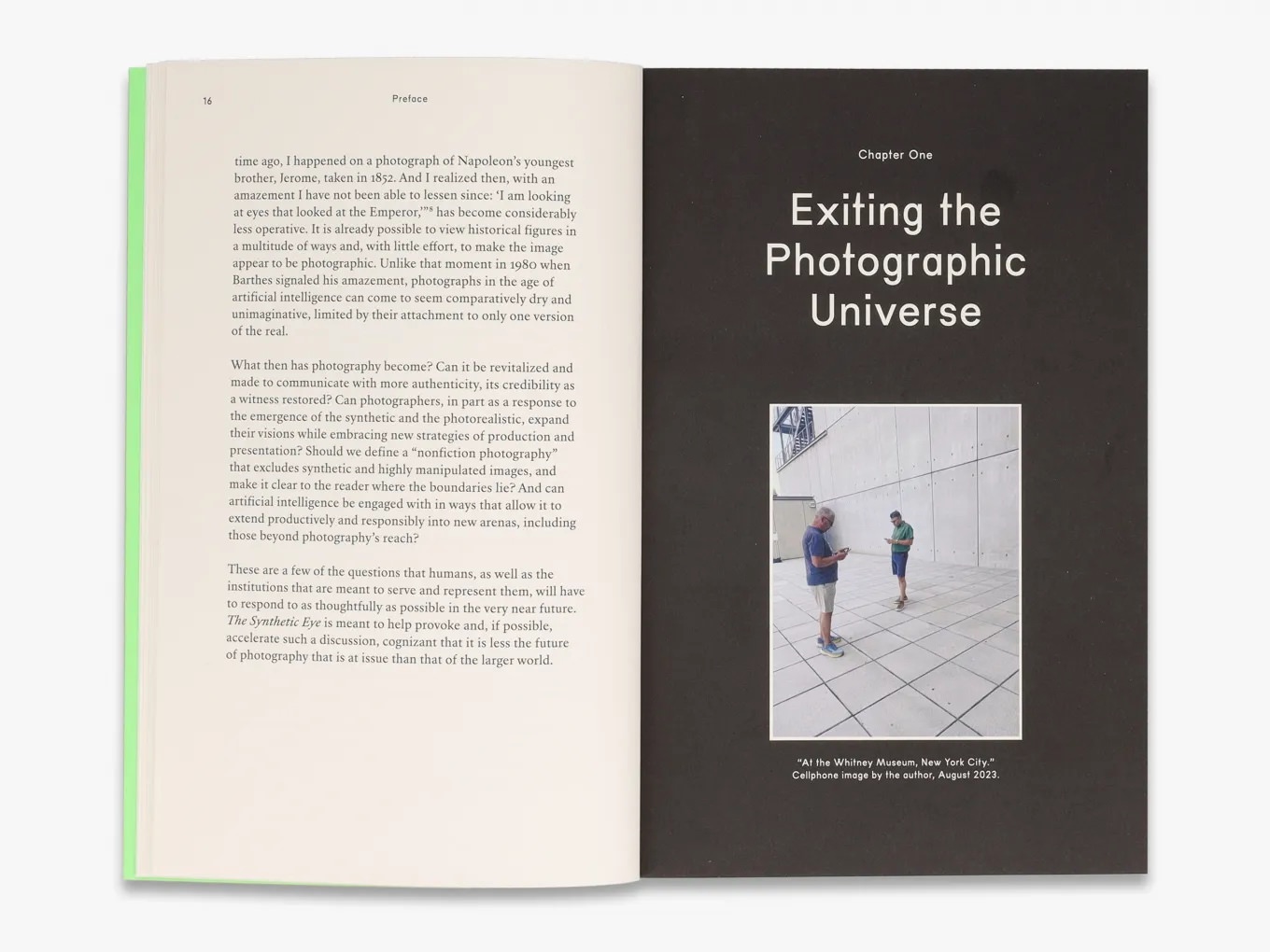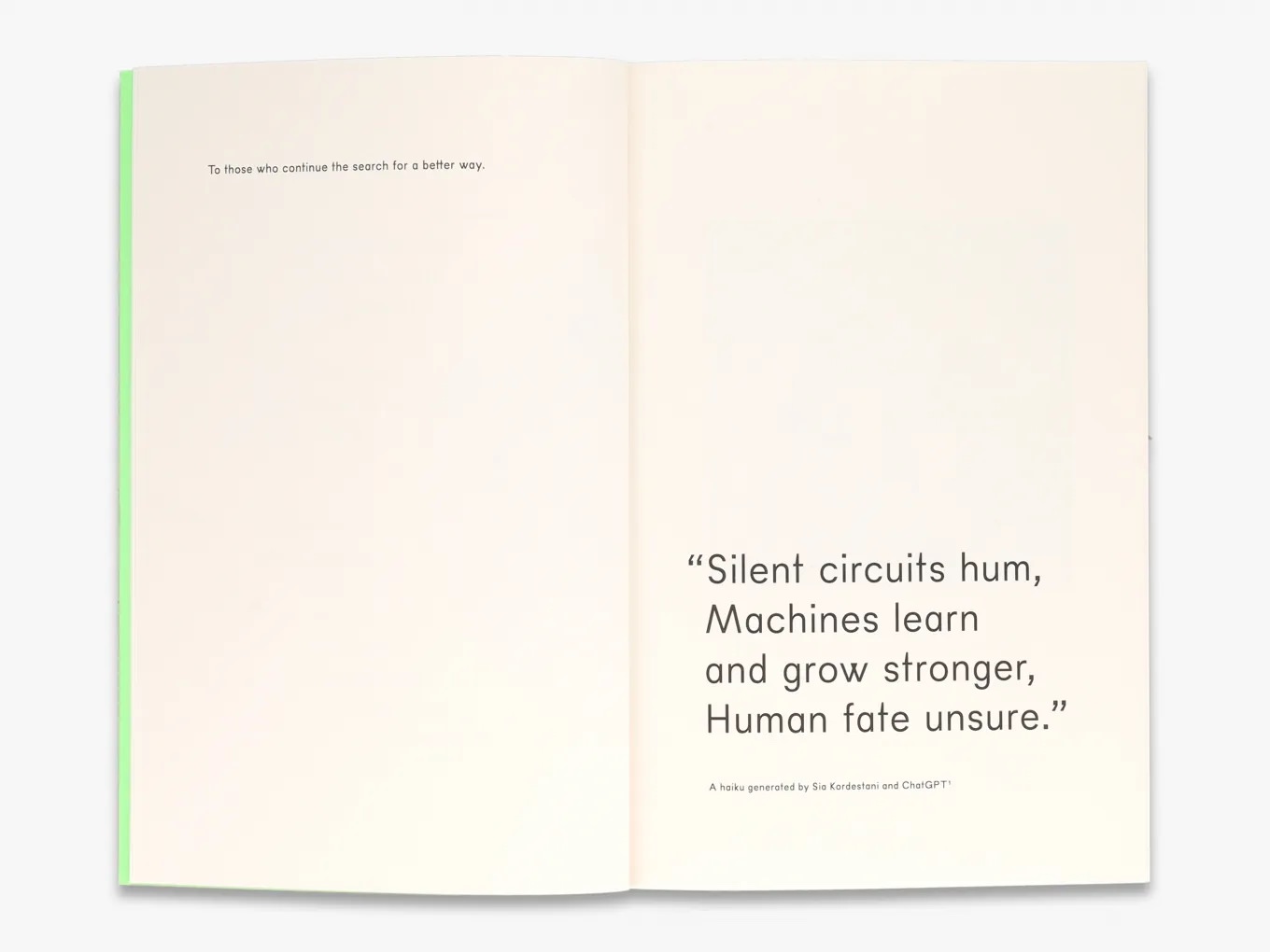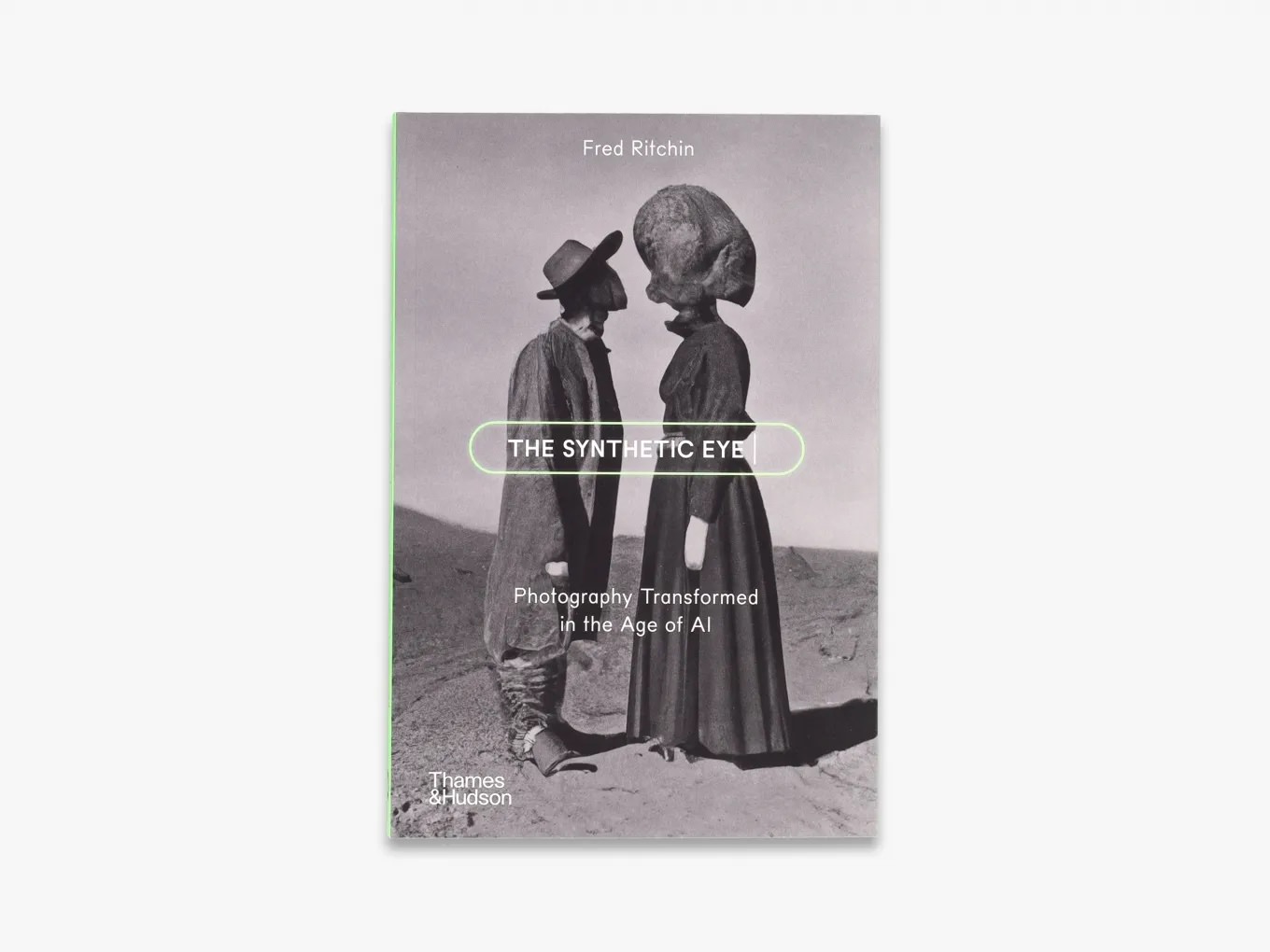Fred Ritchin: The Synthetic Eye. Photography Transformed in the Age of AI
A crucial inquiry into the ethical ambiguities surrounding artificial intelligence, raising urgent questions about the future of photographic representation.
With AI propelling a new digital revolution, The Synthetic Eye argues that the foundations of visual culture are being fundamentally reshaped. This is a revelatory glimpse into the future of photography—one in which the very process of image-making is redefined by intelligent algorithms. It serves as an invaluable guide for navigating a rapidly evolving visual world.
How can we discern truth in the images presented to us? What responsibilities do image-makers, media institutions, and technology companies bear in preserving credibility? Can synthetic visuals be harnessed not only to deceive, but to reveal—to expand our understanding of ourselves and our realities?
The revolution AI has unleashed is profound, calling into question what a photograph can still be or do. This book explores photography’s enduring value to individuals and society, tracing its evolution through the digital age and examining its new potential. These include the convergence of traditional practices and emerging tools, with particular attention to synthetic imagery as both a hopeful and unsettling development.
Historically, photography has always been disrupted. In 1840, just a year after its invention, painter Paul Delaroche famously declared, “From now on, painting is dead.” Photography’s speed, realism, and accessibility freed painters to explore abstraction and experimentation—impressionism, cubism, minimalism, and beyond. Today, photographers face a similar moment of reckoning. Some have responded with bold new strategies, but more radical innovation is urgently needed. Can photography evolve with the same daring spirit? Can it retain, or even enhance, its role as a credible witness? Might the photographic image take on forms yet to be imagined?
Structured across seven in-depth chapters, The Synthetic Eye investigates AI’s impact on our perception of truth, history, and representation. It asks how alternative forms of photography might extend the medium’s reach and what risks accompany that shift. Ultimately, it challenges us to consider how our sense of the real, the possible, and the actual may be irrevocably transformed.
About the Author
Fred Ritchin is a writer, educator and critic. Currently the Dean Emeritus of the International Center of Photography (ICP) School, he was previously professor of photography and imaging at New York University’s Tisch School of the Arts. He has worked as the picture editor of The New York Times Magazine (1978–1982) and created the first multimedia version of the New York Times newspaper (1994–95). He was nominated by the Times for a Pulitzer Prize in public service in 1997 for Bosnia: Uncertain Paths to Peace, a non-linear online photo essay that he conceived and edited. Ritchin’s previous books include In Our Own Image: The Coming Revolution in Photography (1990), After Photography (2009) and Bending The Frame: Photojournalism, Documentary and the Citizen (2013). He continues to teach and lecture widely.

